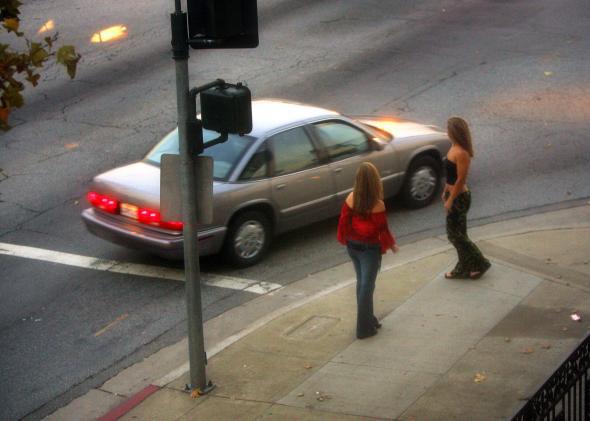On Thursday, the Prince George’s County Police Department in Maryland announced that it would live-tweet a prostitution sting for the first time. “We won’t tell you when or where, except that it’s somewhere in the county sometime next week,” they said coyly. “Suspect photos and information will be tweeted. We’re using this progressive, and what we believe unprecedented, social media tactic to warn any potential participants that this type of criminal behavior is not welcome in Prince George’s County.” If you’re interested, you can search #PGPDVice to track the arrests as they unfold.
In the Atlantic, Conor Friedersdorf eloquently names some of the problems with this offensive. First, while the PGPD has framed the strategy as a deterrent, it is preemptive in an uglier way as well—it punishes suspects before they’re convicted of a crime. Tweeting names and details may not rise to the level of incarceration, but it sets a precedent in which police can sidestep due process to harass the possibly-innocent.
Other tactical fault lines arise as well. Public humiliation is more of a mushroom cloud than a bullet—it envelops families and bystanders. Do the suspects’ kids “deserve the inevitable moment when their middle school classmates mock them for the photo of their dad making the rounds?” asks Friedersdorf. “Do the wives of these [alleged] johns deserve a Twitter campaign on top of the arrest?”
Equally striking to me is the fact that the PGPD will selectively live-tweet prostitution stings. Do Internet users just not care about drug deals or convenience store robbery? At play here is a depressingly retrograde attitude about sex work: that it’s more shameful than other types of law-breaking. And ironically, given their jeering, the PGPD is counting on prostitution’s illicit allure to build their social media presence, pruriently beckoning Twitter users with a front-row seat to the takedowns.
We have yet to work out social media’s place in law enforcement, just as we’re still debating how these platforms fit into journalism, politics, grieving, literature, friendship/dating, and everything else. Twitter especially is great at dissolving the boundary between professionals and civilians; if you’re a terminally boring or distant government agency, providing “authentic” “access” can win you points for hip contemporaneity. (Or at least it can try: the New York Police Department’s efforts to win friends and admirers via their #myNYPD campaign quickly spun away from them.)
But the line between police officers and regular citizens exists for a reason. The government’s not supposed to sneer at you for breaking the law; it’s supposed to deliver blind justice. And public humiliation, the form of discipline most readily available to the crowd, which has no state-consecrated authority to prosecute crime, looks terrible—petty, spiteful, embarrassing—coming from people who can claim that power. That’s why we’re all allowed to torture various testimonies and scraps of info to death in the court of public opinion, but no one takes our verdicts as seriously as a judge’s ruling. PGPD, for #shame.
